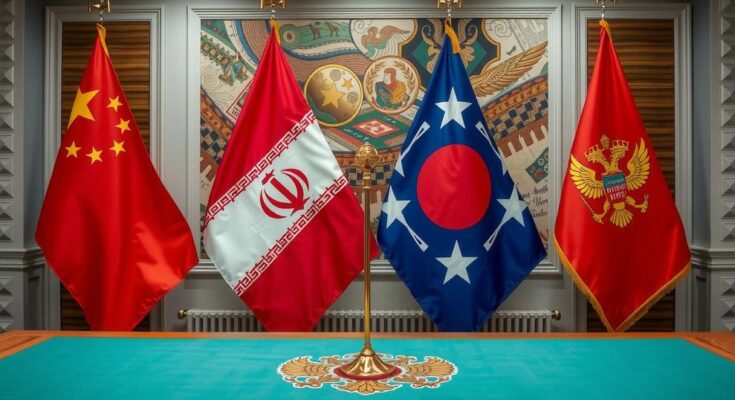Ahead of Donald Trump’s return, President Biden has approved a national security memorandum aimed at guiding the next administration in countering the growing cooperation among adversaries: China, Iran, North Korea, and Russia. The classified document outlines strategies for interagency collaboration, intelligence sharing, and crisis management, as these nations increasingly coordinate their efforts against the U.S.
In anticipation of Donald Trump’s imminent return to the White House, President Joe Biden has formally endorsed a national security memorandum aimed at guiding the forthcoming administration. This document, developed over the summer by Biden administration officials, outlines strategies to address the increasingly cohesive relationships between significant adversaries: China, Iran, North Korea, and Russia. While the specific details remain classified due to their sensitive nature, the memo is designed to assist the next administration from its first day in combating the intertwined threats posed by these four countries.
The memorandum proposes four overarching strategies: enhancing interagency cooperation within the U.S. government, expediting the sharing of intelligence with allied nations pertaining to these adversaries, optimizing the application of sanctions and other economic measures, and strengthening preparedness to address simultaneous crises involving these nations. The necessity for such a document has arisen as concerns about the collaboration among these countries have intensified, particularly following Russia’s 2022 invasion of Ukraine.
Russia’s increasing isolation from the global community has resulted in a burgeoning alliance with Iran, acquiring drones and missiles, and assistance from North Korea in the form of artillery and personnel. Likewise, China is providing critical components to support Russia’s military operations. In exchange, Russia has aided Iran in enhancing its missile and space capabilities while North Korea has gained from Russia’s resources to advance its own military endeavors. Furthermore, both China and Russia are expanding their military technical partnership, conducting joint operations in sensitive regions such as the Arctic.
While Biden and Trump exhibit markedly different international perspectives, officials from both administrations have indicated a desire for effective coordination on national security matters during this transition period. It was emphasized that the memorandum is not intended to constrain the Trump administration but rather to help it develop the capacity necessary for navigating complex global challenges. The ultimate goal is to streamline their approach to foreign policy in light of the evolving geopolitical landscape.
The article addresses the Biden administration’s proactive measures concerning national security in relation to the anticipated return of Donald Trump to the presidency. It outlines the strategic memorandum that aims to counteract the increasing cooperation among key adversarial nations, namely China, Iran, North Korea, and Russia. Given the growing interdependencies between these countries, particularly following the events surrounding the conflict in Ukraine, the urgency for a robust U.S. response has escalated, necessitating careful planning for the incoming administration.
In summary, the newly approved national security memorandum by President Biden serves as a strategic blueprint for the next administration to effectively respond to the collaborating threats posed by China, Iran, North Korea, and Russia. It underscores the foundational goal of enhancing interagency cooperation and intelligence sharing while optimizing economic and military responses to simultaneous crises. This foresight reflects the necessity for a comprehensive approach to national security amid a dynamically shifting global landscape.
Original Source: www.pbs.org




